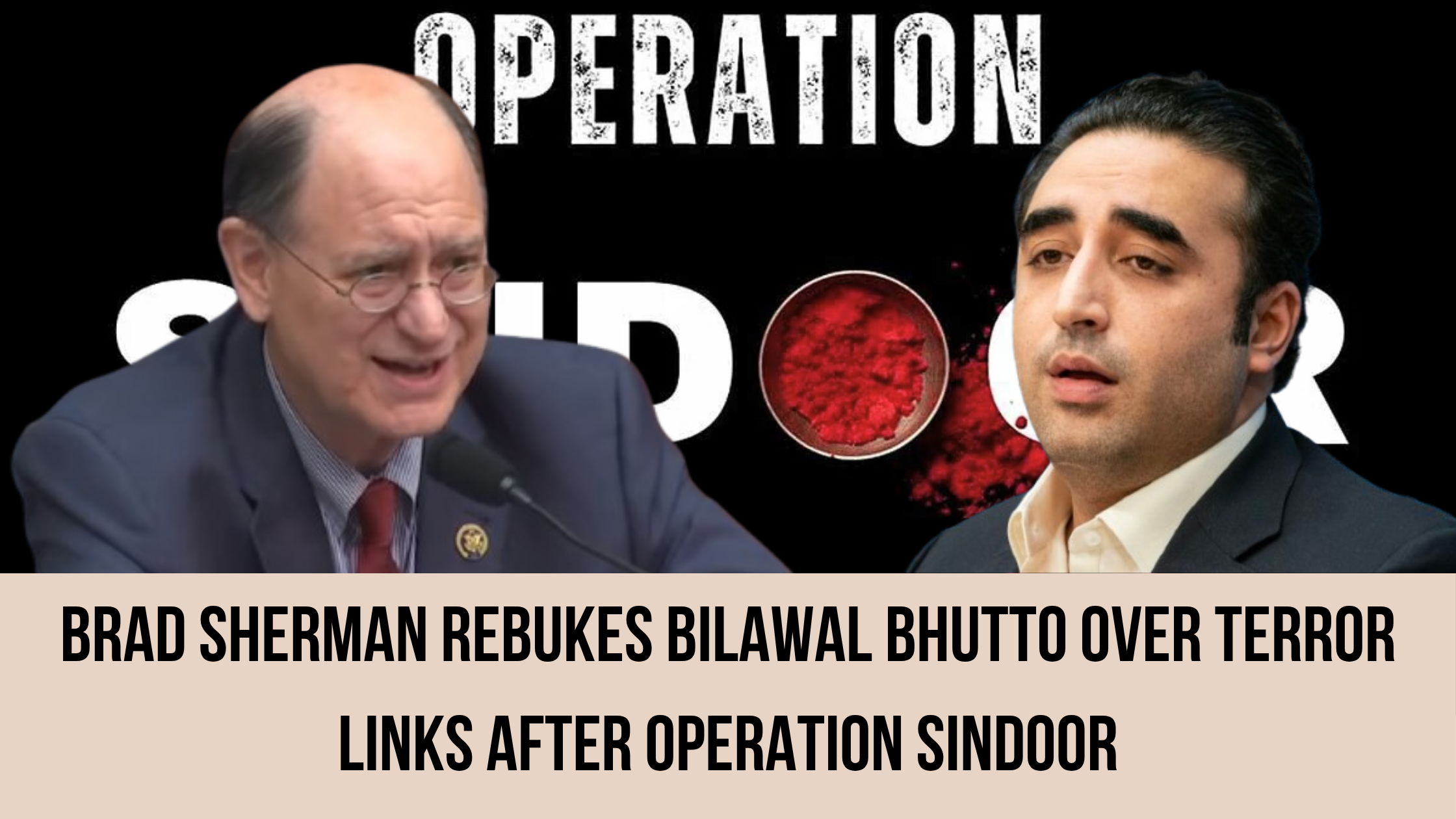In a recent meeting in Washington, U.S. Congressman Brad Sherman didn’t hold back while addressing a Pakistani delegation led by Bilawal Bhutto Zardari. The message? Pakistan needs to take concrete steps to deal with terrorism—especially groups like Jaish-e-Mohammad (JeM)—if it wants to be taken seriously on the world stage.
This conversation came at a time when tensions are already running high following India’s “Operation Sindoor,” a military action that targeted alleged terror launchpads in Pakistan and Pakistan-occupied Kashmir. India claims this was in direct response to the Pahalgam terror attack that left several civilians dead.
What’s the Deal With “Operation Sindoor”?
To put it simply, Operation Sindoor was India’s way of sending a strong message after the Pahalgam incident. Bilawal Bhutto, in response, didn’t mince words either—he called the operation “an act of war” and accused India of being provocative and reckless. He told Pakistan’s Parliament that the country must respond in kind and protect its sovereignty. That kind of rhetoric fired up a lot of emotions back home [2].
But Sherman, representing bipartisan American interests, pushed back during the Washington meeting. He said this isn’t the time for just strong words. He asked Bilawal and his team to ensure that JeM is eliminated from Pakistani soil. According to him, this would show the world that Pakistan is serious about fighting terrorism—not just making promises [1].
Words vs. Action: What Sherman Really Meant
Let’s be honest—politicians hear a lot of promises. Sherman was asking for results. Not just speeches. He emphasized that groups like JeM are a global threat and that it’s time Pakistan stepped up its game if it wants continued cooperation with the U.S.
He also made a point about religious minority rights in Pakistan—another key issue that the U.S. has been highlighting for years. This wasn’t just a polite diplomatic chat—it was a clear, straightforward message: walk the talk [1].
What’s Next for Pakistan?
So, where does this leave Pakistan? Well, Bilawal and his team now have to go back home and decide: are they going to double down on their rhetoric or show the international community they mean business?
Their next steps—especially any actual action against terror outfits and efforts to improve human rights—will be watched very closely. Not just by India, but by Washington, Europe, and others.
The Bigger Picture
This moment isn’t just about India and Pakistan. It’s also about how Pakistan wants to be seen by the world. Is it ready to take tough decisions? Is it ready to be a reliable global partner?
Because as Sherman made clear, talking about change isn’t enough anymore. Showing it is what really matters.
Sources: TOI

